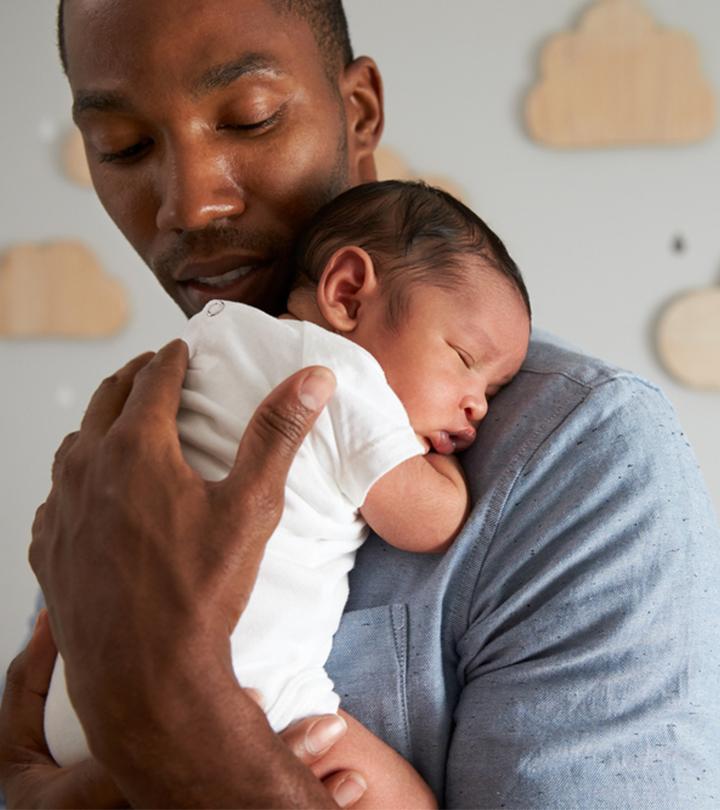Navigating the world of relationships when you’re a parent requires a keen eye and an open heart. Before diving into a committed relationship, especially when you have a child, there are some essential aspects you need to consider. While love is a beautiful thing, being cautious about certain behaviors in a potential partner can save you and your child from heartache down the road. In this article, we have listed some key points that you, as a parent, should be aware of when thinking about getting together with a partner. Read on to know more!
1. Respectful Interaction With Your Child
Image: Shutterstock
One of the vital signs to look for in a potential partner is how they interact with your child. Watch closely for genuine interest and warmth. Do they make an effort to connect? It’s not just about buying gifts but about spending quality time, engaging in conversations, and showing genuine care. Pay attention to how they handle stressful situations around your child. Patience and understanding are key traits to look for.
2. Consistency In Behavior
Consistency is not just about their behavior with your child but also how they treat you. Does their behavior remain steady or does it change drastically over time? Consistency signifies stability and reliability, traits essential for someone entering a child’s life. Watch for red flags like extreme mood swings or inconsistent reactions to everyday situations.
3. Communication With You And Your Child
Image: Shutterstock
Effective communication is the cornerstone of any healthy relationship. When it comes to a partner entering your child’s life, it becomes even more crucial. Observe how they communicate with you and your child. Are they respectful in their tone and language? Do they actively listen and express themselves clearly? A lack of effective communication can lead to misunderstandings and conflicts, which might impact your child.
4. Understanding Of Boundaries
Respect for boundaries is non-negotiable, especially when a child is involved. A potential partner should respect your parenting style and boundaries set for your child’s well-being. If they disregard your rules or try to undermine your authority as a parent, it’s a major red flag. Healthy relationships thrive on mutual respect for each other’s boundaries.
5. Handling Stress And Challenges
Life throws curveballs, and how a partner handles stress and challenges is telling. Watch their reactions during tough times; it’s a window to their character. If they resort to aggression, excessive drinking, or neglect when things get tough, it could be detrimental to your child’s well-being.
6. Commitment Level
Image: Shutterstock
A crucial aspect is understanding their commitment level towards you and your child. Are they genuinely invested in a long-term relationship that includes your child, or are they just in for the short-term? Clear communication about their intentions and expectations is essential to avoid future heartbreak.
7. Prioritizing Your Child’s Well-Being
A partner entering your life should prioritize your child’s well-being. It’s not about putting your child above themselves but about considering your child’s needs and emotions in decisions and actions. If they consistently disregard your child’s well-being, it’s a significant warning sign.
8. Family Dynamics And Blended Relationships
Understanding how your partner integrates into your family dynamics is crucial. Are they respectful towards your ex-partner (if involved)? How do they navigate co-parenting situations? It’s important to foster a harmonious environment for your child. If your partner is unwilling to compromise or causes tension within the family dynamic, it might not be a healthy fit.
9. Trust And Reliability
Image: Shutterstock
Trust forms the foundation of any relationship. A trustworthy partner respects your trust and is reliable in their actions and promises. If they repeatedly break your trust or fail to follow through on commitments, it could lead to instability in your child’s life.
10. Seeking Support And Growth
A partner who acknowledges their imperfections and is willing to grow is a gem. Relationships, especially in a blended family setup, require constant adaptation and growth. A partner open to seeking support, whether through therapy or parenting classes, shows a commitment to the relationship and your child’s well-being.
11. Financial Responsibility
Image: Shutterstock
Financial stability and responsibility are vital when considering a partner. How do they manage their finances? Are they responsible with money? A partner who is financially reckless or relies heavily on you for financial support could create stress and instability for your child’s future.
12. Recognizing Red Flags
Being vigilant about potential red flags is crucial. Signs like controlling behavior, manipulation, lack of empathy, or disrespect towards you or your child are serious warning signs. If you notice consistent patterns of such behaviors, it’s essential to reassess the suitability of the relationship for the well-being of both you and your child.
In terms of adult relationships, it’s important to take your time and observe how a potential partner fits into your family’s life. Your child’s happiness and well-being are paramount. Don’t rush the process; take each step cautiously, ensuring that the person entering your life adds value and love to your family unit. Always remember, it’s not just about finding a partner for yourself but for your child too.

















